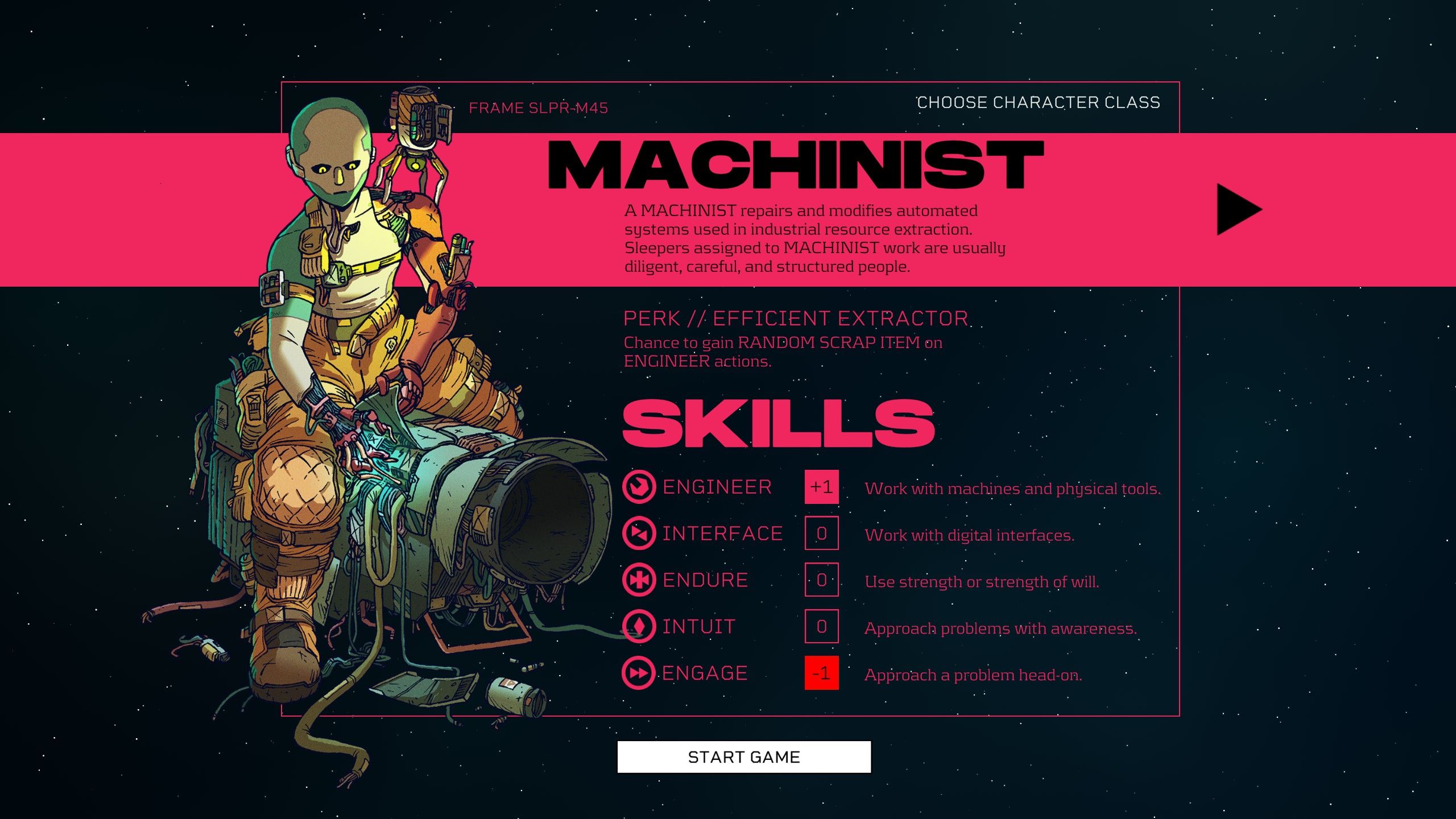Citizen Sleeper, or How I Learned to Stop Worrying and Love the Decay
Citizen Sleeper, a stunningly well written game developed by Jump Over the Age, raises an age-old human question - why am I alive? From a purely biological perspective, the answer is easy. Like every other living thing, I am alive to reproduce. To seed my genetic code into the next generation of homo sapiens sapiens. But I know that is not what I am really asking, nor is it a compelling answer for thinking beings who know reproduction is at best a necessity for the continuation of life and cannot be held up as an individual goal for each wildly diverse human individual. Why am I alive? Why do I persist? Why do I suffer? What's the point? Citizen Sleeper wants you to answer those questions on your own, but it offers some compelling theories. In a transhumanist triumph, it offers up a world of beings - including yourself - that are not tied to mortal shells. One needs not suffer. And yet on a decidedly humanist note it suggests that suffering might be the price we all pay for the warmth of human love and interaction. It's a beautiful game, and a wonderful work of art.
At the outset you are thrust into a text-based world full of nouns and titles that you probably don't initially have a mental glossary for - Sleeper, Havenage, The Eye, Crit - and sci-fi tropes that you might be more familiar with - Cryo, Biomechanical modifications, rival corps, isolated space stations. Don't worry, it won't take you long to put everything together. A relaxing, cerebral soundtrack will keep you entranced while you spend 8-10 hours exploring this little space station - its people and its history.
The game is based on a rudimentary turn-based dice system that wouldn't be out of place in a tabletop game. Actions cost dice, and typically net you one of the game's two 'currencies' (crit and energy) or move a turn-based 'clock' forward in order to progress the game's story. A quick tutorial effectively orients you to the game's major systems, including a very simple hacking system based around matching dice and gathering data. Before long, you have access to the entire station.
The unnamed player character's main drive is very simple - survive. To do this you need to maintain energy - usually food - and your 'condition', which also determines the number of dice you can use every turn. Due to the machinations of an evil corporate power, the mechanical body that you find yourself inhabiting (stiffly, may I add, with limited sensory capabilities and a decided feeling of otherness) is built with planned obsolescence. If you do not inject medication on a fairly regular basis, your body will decay and die. Unfortunately, that treatment does not come cheap, a problem which is tragically very real to those of us who need medicine in countries without universal healthcare.
Survival is mostly a matter of making enough money to purchase energy and medication, although by about the midpoint of the game you should be in a comfortable enough position to afford both of those often enough. And there are always workarounds, like mushrooms. I refuse to further elaborate.
When you're not surviving, you'll be interacting with the handful of named characters that pop up throughout the game. These interactions play out like a text-based adventure, you read, you click, and you read some more. It's very relaxing, and it helps that the writing holds up as excellent science fiction fare. Characters are represented by drawn portraits that could have walked out of an anime studio. Each one is unique and visually striking, and pairs well with the style of the game. Every character felt genuine and fleshed out in a way most RPGs could learn from, and I had a strong compulsion to find the end of each story. From street vendors to mechanics and mercenaries, these characters are the beating heart of a dark and cold space station.
If I haven't sold you on this game yet, let me make it very clear. This is one of the best sci-fi experiences I've had in my life, full stop. It is a gorgeous, compelling triumph of writing, worldbuilding, and art. I could play this gameplay loop for hours without getting bored or fidgety, an achievement most games fail to reach in my busy adult life. I've rolled credits once so far, and I'm going to keep playing until I have nothing left to do. Then, if I have the time, I might go back and play it again. Free DLC is planned for July, and I certainly intend to experience it then. Why am I alive? Why do I persist? To experience the warmth of art like this.



Comments
Post a Comment